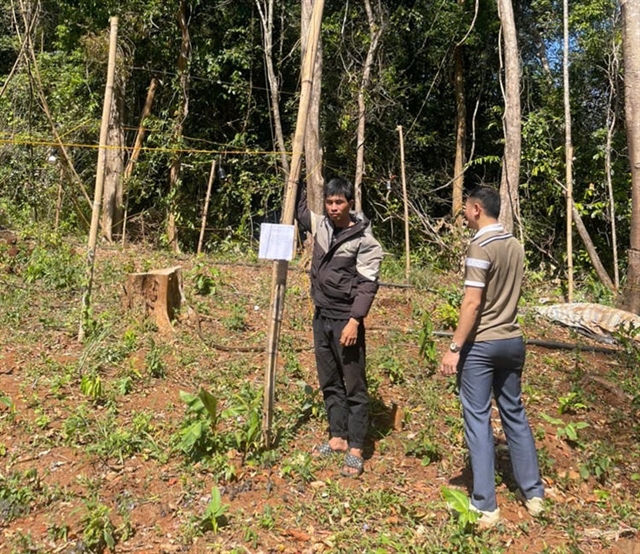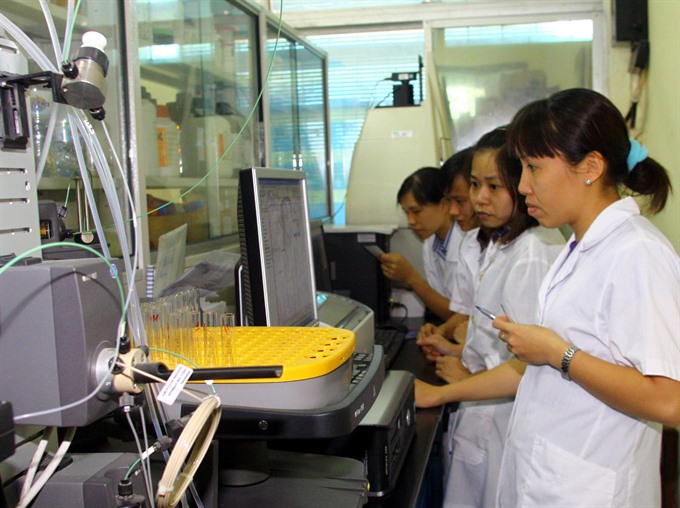 Society
Society

With the new scheme that is expected to kick start the development of natural sciences in the country, Việt Nam seeks to secure itself a prominent ranking in the region’s top players by 2025.
 |
| Students work at a science lab in the Department of Biology of the University of Natural Sciences, under the National University of Việt Nam. — VNA/VNS Photo Bích Ngọ |
HÀ NỘI — Việt Nam aims to become an advanced nation in the study and application of natural sciences by 2025.
Towards this, an eight-year plan (with vision until 2030) will start this year to take studies in four main disciplines –Chemistry, Life Science, Earth Science, and Marine Science – to a new level.
The plan envisages that by 2025, there are 15-20 strong research groups in each of these four fields. It also aims for an annual increase of 20-25 per cent in the number of works published in prestigious science journals (those listed in the bibliographic SCOPUS database). The target is 10-15 per cent in the field of marine science.
To implement the plan, the State will assign specialised science and technology institutes to conduct scientific research and create products that can be used in manufacturing and in daily life.
To improve research capacity in basic sciences at tertiary institutions, investment will be poured into key laboratories in each field and research group.
While research tasks will be farmed out to young scientists, high school and universities students who win prizes at national and international competitions will also be considered.
Việt Nam will also boost bilateral co-operation with the Russian Foundation for Basic Research and other countries with developed natural sciences in Southeast Asia, Europe and North America.
It will also try to achieve more robust multilateral co-operation with UNESCO programmes like International Basic Sciences Programme (IBSP), Man and the Biosphere Programme (MAB), Intergovernmental Oceanographic Commission (IOC), the International Hydrological Programme, and the International Geoscience and Geoparks Programme.
Certain sub-disciplines in Chemistry will receive more attention like organic chemistry, pharmacology, inorganic chemistry, theoretical chemistry and physical chemistry, chemistry of polymers and materials, and analytical chemistry.
In Life Science, the sub-disciplines of life at tissue, cellular and molecular levels, population and ecological studies will attract greater focus.
In Earth Science, the focus will be on geology, geophysics, geography, meteorology, climate, hydrology and water resources.
Oceanography, atmospheric and continental studies, marine chemistry, marine biology, ecology and geology, marine geophysics, marine engineering and marine infrastructure will be the subjects under Marine Science that will attract greater attention. — VNS




